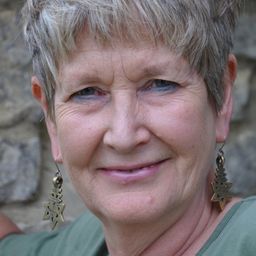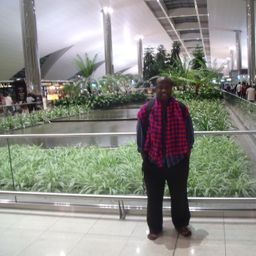Subversion and Heritage in Contemporary Africa
My Session Status
It is widely acknowledged that heritage—the selective valuation and use of the past in the present—can be an oppressive. Heritage work in Africa has even been characterized as "an instrument for dictatorship" (Peterson et al. 2015:28) because it is often implicated in upholding particular narratives and political orders, imposing a singular vision onto a heterogeneous past. In contrast, this session will explore other possible appropriations of heritage, as it is constructed and deployed in the margins, or outside of formal heritage institutions. Can heritage also be a space from which to undermine established orders, make claims for representation and inscribe different visions for the future—or is this impossible given the inherently conservative characteristics of the authorized heritage agenda?
It is particularly vital to ask these questions of post-colonial and post-conflict African countries, often characterized by continuities in top-down state heritage management that serve a narrow patriotic nationalist project from which many citizens (such as youth and minorities) feel excluded. This model is being increasingly destabilized by moves toward federalism (in Ethiopia, South Africa and Nigeria), devolution and new legislation. In Kenya, for example, constitutional reform has enshrined new rights to cultural, indigenous and minority heritage.
Papers will challenge the myth of a unitary state as the primary mover in the use of heritage, while at the same time providing new insights into the role of individuals and autonomous groups in promoting what is a potentially subversive expression of heritage. As the apparatus of heritage expands across the continent, marginalized groups are appropriating its language and symbolism, imbuing it with new and different meanings and redeploying it to serve their own agendas. Thus heritage can be translated in novel ways. Examples include the uses of heritage and heritage narratives in indigenous or cultural rights claims, often casting heritage in profoundly different ways to state or international bodies. Or the use of heritage as a lobbying tool by civil society and in advocacy, such as recent attempts invoke the protection of heritage in opposition to infrastructural development projects and land grabbing in Sudan and Kenya.
The session cuts across several of the conference themes; in particular it addresses the call to rethink heritage policies and practices beyond elite cultural narratives. We welcome empirically grounded papers, from a range of disciplines that interrogate how and under what circumstances heritage may become a device for articulating and enacting alternative narratives and aspirations, while recognizing the complexities and dark sides of apparently emancipatory processes.
Sub Sessions
“Thank God they have taken him off. It reminds me of the colonial past.” (Interview excerpt) These were the words that expressed the grievance as well as the anger of one of my interview partners during my first fieldwork in Namibia, from October 2013 to March 2014. A heated controversy surrounded the equestrian statue of Windoek, after the government decided in a top-down process to move—and ban—the so-called German “Reiterdenkmal“ to the backyard of Namibia’s public sphere, ther...
This paper will explore the class and generation specific ways in which Ghanaian game developers (re)present African heritage to enact their aspirations in a post-colonial African capital like Accra. Game developers are part of a broader group of tech entrepreneurs: young middle-class Ghanaians who (aspire to) own their own tech company and/or work for one. Tech companies are young Ghanaian companies developing software products. Based on ethnographic fieldwork among this group, this resea...
The practice of female genital mutilation or cutting (FGM/FGC) does not tend to be seen and analyzed through a heritage lens, but from a range of development, women’s health, human rights, “cultural” and/or anthropological perspectives. It is often condemned by non-governmental organizations and governments as evidence of deep-seated “barbaric,” “cultural” beliefs that must be changed or ideally swept away if FGM/C is to be eradicated, although the meaning of “culture” is rarely defined by...
The year 2015 marks an extraordinary year in the reinvigoration of a public heritage discourse in South Africa. The Rhodes Must Fall campaign gave expression to new articulations of critical heritage as social justice by an emergent post-apartheid generation. These articulations have emphasized continuities of dispossession between historical Black suffering and the intersections of disadvantage in the postcolony today. I wish to extend this critique by directing attention to the opportuni...
This paper will describe a possible civil society organization approach to analyzing and advocating for a community land legislation in Kenya that responds to historical and contemporary matters of land tenure. It will present basic information on the land tenure and citizenship, analysis methodology, and identifies key issues that must be addressed in developing and deploying a community land legislation in Kenya. The paper will then present a framework developed by the author—a comprehen...
This paper will critically explore how the promotion of culture and heritage is being used by civil society and advocacy organizations to protect communal land rights in the context of large-scale development plans in Northern Kenya. This predominantly pastoralist and historically marginalized region has recently become the focus of extensive development plans, including oil exploration, renewable energy schemes and the planned LAPSSET corridor—an ambitious infrastructural development plan...






